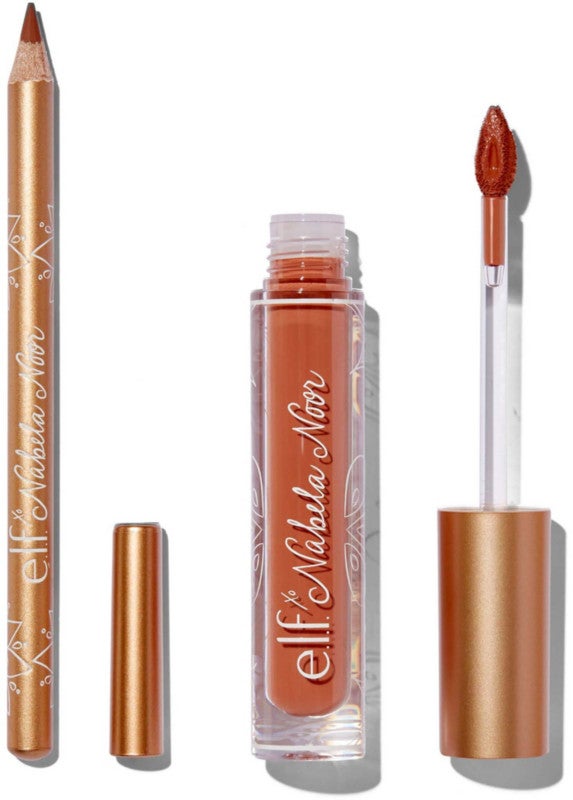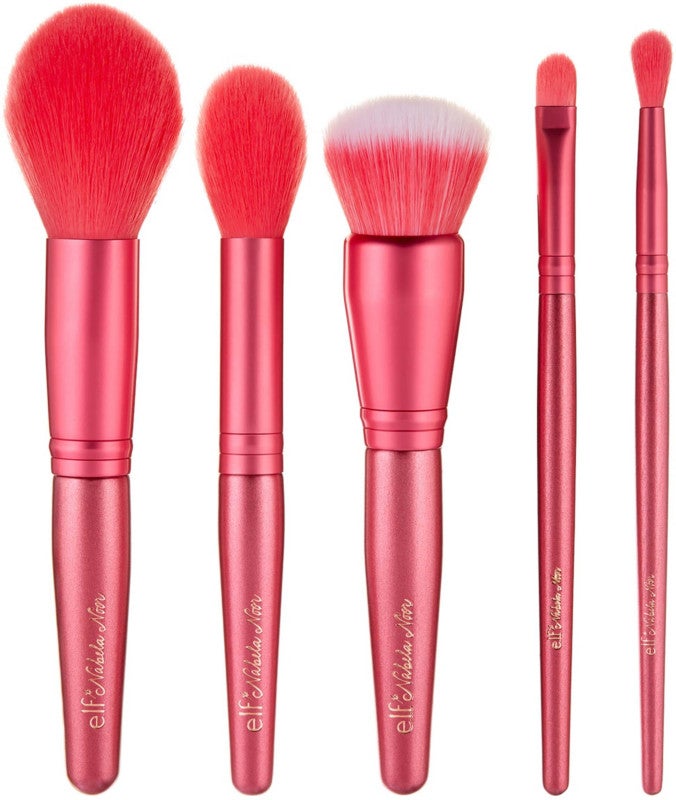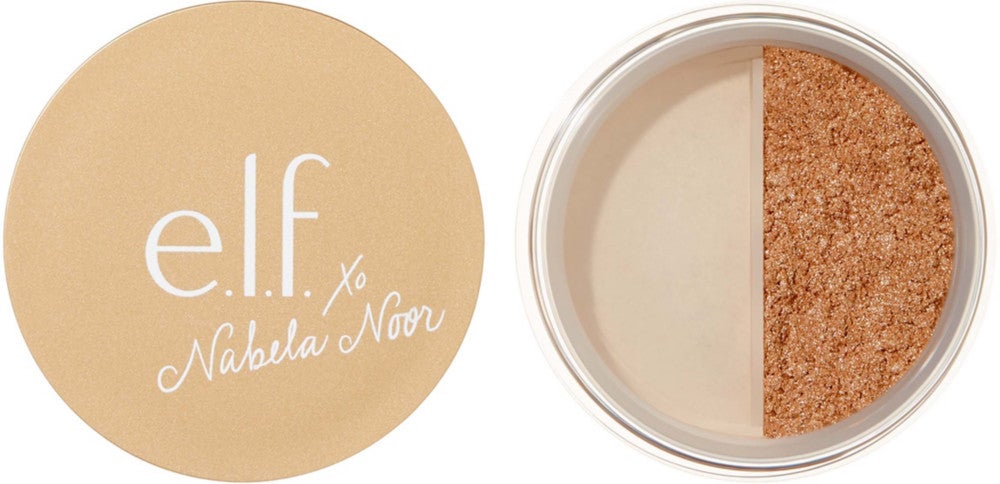In 2017, beauty and fashion vlogger Nabela Noor posted a tutorial that would change her perspective forever. At first glance, this viral video appeared to follow the path of any other beauty tutorial she might post — but it had a surprising twist. In the Instagram clip, which has garnered over 1.4 million views, the influencer is seen writing hurtful words across her face in contour — words she says she was called by trolls. Noor then crosses them out with concealer and buffs them into her complexion before writing a positive affirmation in their place. Then, she continues the tutorial with a smile on her face, a proverbial middle finger to her haters.
AdvertisementADVERTISEMENT
"I learned quickly that happy people don’t say hurtful things and that happiness begins with self-love," she wrote in the caption. It's been two years since she posted the viral video, and living in the public eye is still a challenge, but she tries to bring this positive ethos into everything she does.
"Some days I succumb to the words that people say about me and some days I falter because this is a very difficult industry to be in, especially [when you're] so different," Noor says. "But the conversation on how you pick yourself up from that is what's important to me. It's just [about] being honest about that journey."
Today Noor is using her platform to promote diversity, both as part of the body positive movement and around her cultural background as a first generation Bangladeshi-American. It's one of the reasons why her first beauty collab is so special.
Launching this week, Noor has partnered with e.l.f. Cosmetics to launch a capsule collection of products that are universally-flattering on all complexions and pay homage to her roots — both as a South Asian woman and to her childhood in a working class family where drugstore beauty was considered a luxury.
The small collection includes a makeup brush set, a shimmery highlighter, and a lip liner and liquid lipstick duo. They're available individually, or buy it all and you'll score a gold clutch with henna designs that were hand-drawn by Noor.
"It's a declaration of who I am," she says about the collection. "Being Bangladeshi-American is such a big part of my identity and honoring that is huge." The irony in Noor's recent success is that she was actually bullied for wearing henna designs and traditional South Asian headpieces, called maang tikka. Today her culture is front and center on Ulta Beauty endcaps promoting her line. (The maang tikka she is wearing above was made by Reena Mathur, a Indian jeweler who founded ReeMat Designs.)
While small, she knows that representation like this can move the dial for girls who don't see themselves reflected in mainstream beauty campaigns. "During this very divided time, it's exciting to be loud and proud of who I am," she says. "I hope that this collaboration serves as a bridge for so many people and as an invitation to celebrate something different."
While small, she knows that representation like this can move the dial for girls who don't see themselves reflected in mainstream beauty campaigns. "During this very divided time, it's exciting to be loud and proud of who I am," she says. "I hope that this collaboration serves as a bridge for so many people and as an invitation to celebrate something different."
AdvertisementADVERTISEMENT
Even her parents, who were once hesitant about her career path, are excited. "The turning point for them was when they started to experience the impact themselves," she says. "They felt that people were getting to know Bangladesh, our culture, and our religion because of my content, which gave them pride and excitement."
But it's more than that: She says that working with e.l.f. ended up being a full circle moment. "Being a child of a hardworking immigrant family, we didn't have the budget for me to buy makeup," Noor says, noting that it was affordable brands like e.l.f. that made it easier.
Noor's journey has come a long way from that 2017 video. "I'm stronger, more empowered, and even more dedicated to making people feel comfortable in their own skin," she says, noting that she wants to make young people feel like they were "born to stand out."
Now, she's proud to speak Bangla in her videos, share her family's experiences, and ultimately, represent her South Asian community in all that she does. She still feels that there's a lack of representation, but she aims to change that, and collaborations like this one are just the beginning. As she put it, "I'm not seeing [representation] happen, so I'm going to make it happen."
At Refinery29, we’re here to help you navigate this overwhelming world of stuff. All of our market picks are independently selected and curated by the editorial team. If you buy something we link to on our site, Refinery29 may earn commission.
AdvertisementADVERTISEMENT









